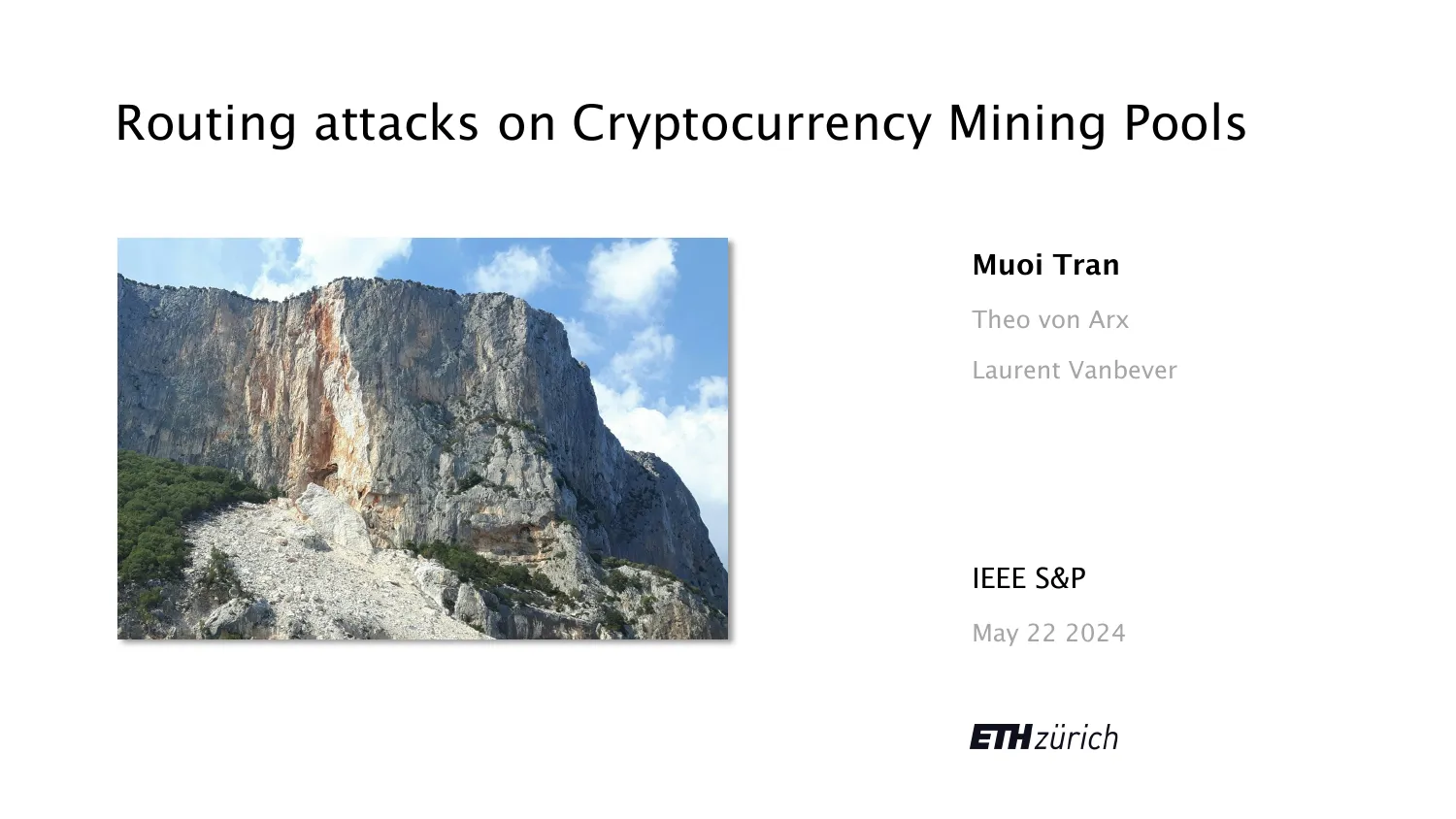
Muoi Tran
I am an assistant professor at Chalmers University of Technology and I lead the Secura Lab.
I had 2.5 wonderful years at ETH Zurich working with Laurent Vanbever as a postdoctoral researcher. Before that, I obtained my Ph.D. degree in Computer Science from National University of Singapore in 2022 under the guidance of Zhenkai Liang and Min Suk Kang.
My research topics of interest include network and blockchain security. My goals is to find novel attacks that break large systems and to counter them, toward building a more secure Internet. My publications can be found here.
For prospective students at ETH Zurich, I offer remote supervision to semester projects, bachelor or master theses in network security, as a part of collaboration between NSG and Secura Lab. Research visits to Chalmers are possible under certain conditions. Please send me an email.
Research Area
Talks
Publications
Running Theses
Student: Jan Matter
Supervisors: Muoi Tran, Ayush Mishra, and Laurent Vanbever
Supervised Theses
Student: Guanshujie Fu
Supervisors: Valerio Torsiello, Lukas Röllin, Muoi Tran, and Laurent Vanbever
Student: Alessandro Giaconia
Supervisors: Muoi Tran and Laurent Vanbever
Student: Adrien Nelson Rey
Supervisors: Muoi Tran and Laurent Vanbever
Student: Alessandro Giaconia
Supervisors: Muoi Tran and Laurent Vanbever
Student: Nikodem Kernbach
Supervisors: Muoi Tran, Theo von Arx, and Laurent Vanbever
Student: Dominique Portenier
Supervisors: Theo von Arx, Muoi Tran, and Laurent Vanbever
Student: Kai De Windt
Supervisors: Lioba Heimbach, Muoi Tran, and Roger Wattenhofer
Student: Kilian Dasen
Supervisors: Ege Cem Kırcı, Muoi Tran, and Laurent Vanbever
Student: Theo von Arx
Supervisors: Muoi Tran and Laurent Vanbever
